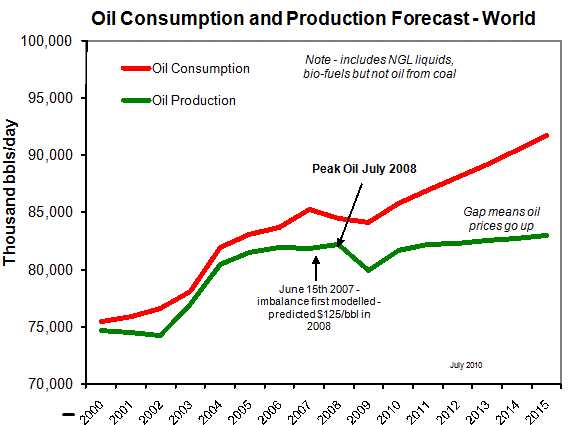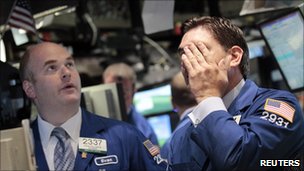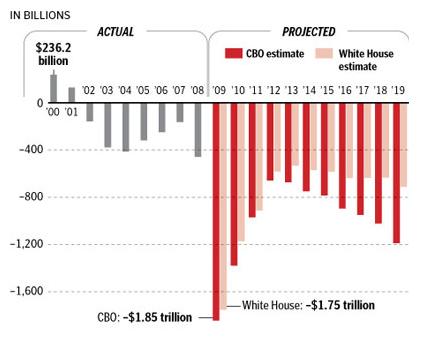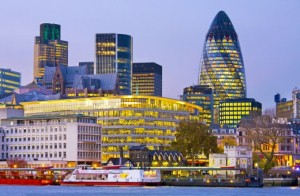393: Hedge Fund Manager Back From Summer Break
08-25-2011

Hedge Fund Manager’s Back: Thanks goodness it’s the end of the summer holidays. At long last the hedge fund managers are back and the automatic electronic stop loss sales will end. Expect to see more stability. We’re not joking when we said that you should sell all stocks and shares by 8 May this year – then don’t consider getting back in until September earliest.
Volatility Index Correlations With Summer Holidays: As expected the volatility index skyrocketed just as the summer holidays started, the market went crazy when the big investors left for their two month summer breaks – operating from their boats in the Med and reducing their positions. People shifted from stocks into gold. Now the summer holidays are drawing to close, the economy has slowed and everyone has felt most pessimistic – the focus has started to switch again:
· Libya - looks like the old regime will end and oil exports might begin to ramp up in the next six months – much needed good light sweet crude
· QE3 – speculation has started that another round of printed money will commence – another short term US fix. Investors are rubbing their hands – because if this starts, they know that stock markets will start to rise again. Essentially it’s only the printed money and low interest rates that are propping up stock markets and company profits. This will of course come to an end sometime – but be prepared to jump on the band wagon early, if QE3 is announced as early as midday Friday 26th August in New York.
Oil: Oil prices have dropped back and because of this inflationary pressures are likely to subside somewhat – albeit this will be temporary. Another reason why interest rates could remain low even if printed money starts for a short while.

Investment Strategy: So our strategy for now to: wait, watch and see if QE3 is ann ounced. If it is, then US stocks will rise sharply until the printing press stop again. It’s that simple. So you need to follow the printed money – then get out six weeks or more before the printing press stop. Just as we advised last time. We knew the printing would stop 30th June 2011. We told you to get out by 8th May. Sure enough, come mid May, the markets started to tumble and have dropped 20% since. Oil stocks and oil prices should follow the stock markets higher – almost in parallel – if printing begins again. This is the final bear market rally and bear trap blow-off period. Just before the next stock market crash – probably of >25%, it’s wise to shift into gold (again). Gold we believe will surely skyrocket eventually as the printed money leads to very high inflation end 2012 onwards. Gold and silver still look cheap – they may drop back as the printing presses start again, but eventually people will switch back into gold when inflation really is on the horizon.
ounced. If it is, then US stocks will rise sharply until the printing press stop again. It’s that simple. So you need to follow the printed money – then get out six weeks or more before the printing press stop. Just as we advised last time. We knew the printing would stop 30th June 2011. We told you to get out by 8th May. Sure enough, come mid May, the markets started to tumble and have dropped 20% since. Oil stocks and oil prices should follow the stock markets higher – almost in parallel – if printing begins again. This is the final bear market rally and bear trap blow-off period. Just before the next stock market crash – probably of >25%, it’s wise to shift into gold (again). Gold we believe will surely skyrocket eventually as the printed money leads to very high inflation end 2012 onwards. Gold and silver still look cheap – they may drop back as the printing presses start again, but eventually people will switch back into gold when inflation really is on the horizon.
Bull or Bear: You will ne ed to be very nimble in this current environment. As discussed in previous special reports, we are about:
ed to be very nimble in this current environment. As discussed in previous special reports, we are about:
· 60% of the way through a bear stock market of 17.5 years duration (predicted to end in 2017)
· 60% of the way through a bull commodities market of 17.5 years duration (predicted to end in 2017)
· Yes, one can make serious money in stocks and shares, but only by timing the market very well – and this is difficult, but in summary:
o If the printing press start again this is a trigger to get into oil and mining stocks
o If the printing pess stop and inflation takes off then this is the trigger to get into gold aggressively
Oil and GDP: If oil prices rise above $100 a barrel it’s likely that this will have been caused by a spurt in global GDP growth – in part triggered by the printed money and stock market rallies – but any oil price over $125/bbl is a signal to get out of oil stocks and stock markets because it will be a high in both oil price and stock market prices. As a general rule, in this current Peak Oil period – oil prices rise with rising oil consumption, and this rises with global GDP growth that also rises with global stock markets that rises with each big injection of printed money. But eventually, the printed money will lead to massive and totally unsustainable deficits and inflation – at which time the whole pack of ca rds will crash. The only safe heaven at this stage will be gold and silver.
rds will crash. The only safe heaven at this stage will be gold and silver.
Euro Debt: The European debt issues will roll onwards – the problem will definitely not go away – this would be a miracle. Europe’s best years came between 1996 and 2001. This coincided with a record high oil production. Now that European oil production is in terminal decline and oil prices have risen from $9/bbl in 1999 to 12 $100/bbl in 2011 - 12 years later, the Eurozone oil import bill is now $0.6 Trillion a year. Europeans cannot afford even half of this. The US oil import bill is $0.35 Trillion a year. The USA cannot afford this either. The ability to grow western economies is, has and always will be controlled by the cost of importing oil in respective countries. So as long as oil is over $100/bbl it will be almost impossible for Europe to grow at more than about 1% per annum. If oil prices rise above $150/bbl – Europe will be in recession until they drop back again. There is not enough cheap oil to go around anymore and China, India and other developing countries have oil consumption that is growing at 3% to 6% per annum. Something has to give and it’s the western economic growth – as long as no efficiencies or improvements in productivity are being made in these countries. The German manufacturing powerhouse will get sick and tried of paying for Greeks drink Ouzo on the beach – at this point, the Eurozone will break up. It’s only a question of time. The good news is low priced oil and Euro integration plus the Big Project led to a peaceful Europe since 1945 for the first time in centuries. But having Greece and Germany with similar exchange rates and interest rates is frankly ridiculous – especially when oil price rise and Peak Oil affects the economies.
UK Economy: For the UK, we expect:
· Unemployment to steadily rise – albeit slowly
· Inflation to stay stubbornly high at >4-5% rising strongly after 2012
· Wage growth to stay low at ~3%
· Retails sales to drop to 2.5% (well below inflation)
· House prices to remain stagnant or slightly declining in all provincial areas – and increasing slightly in central London
· The deficit to remain high
· FT100 stock market to drop further in the long run – it should really be at 4000, though it could rise to 5500 if the USA starts printing money again before eventually dropping back to 4000 when the printing presses stop and inflation takes off.
· Rents will rise, rental demand will rise, availability of rental properties will decrease
UK Property Market
Net Emigration: There was a migration of 539,000 people in the UK last year, with 30 0,000 people leaving. That’s a net increase in the population of 239,000 people. That’s gigantic. Net migration increased 21%. This equates to 2.4 million people in a ten year period. The Tory target of 25,000 net immigrants has been exceeded ten-fold – sounds like an open border policy. Meanwhile there are only about 100,000 UK properties being built each year, and 30,000 being demolished or abandoned/boarded up. Just to keep up with demand, the country would need to build at least 170,000 properties. No wander in London the housing crisis continues. Rents are rising sharply. Over 50% of young people have given up ever owning a home. The latest stories are people being forced to share rented accommodation with many other people – say 5 separate people renting one flat. No surprises because of all the housing regulations over the last 12 years plus increases in capital gains tax from 18% to 28% have put off many buy-to-let investors. It’s also been difficult to raise finance and of course being charged massive fees for loans, then being charged rates of 5.5% when base rates are only 0.5% is an absolute rip-off. So not enough private rented property is on the market, with many new tenants all scrambling to rent property. It really is nearing crisis proportions. For the buy-to-let investor, yields have risen, voids have dropped, rental defaults have increased and the burden of regulation has remained at sky-high levels. Well managed properties are making serious returns, particularly in London. Regrettably 25% of young people are unemployed – so the social situation is not exactly stable. And it’s tough when CPI inflation is running at 5%, fuel prices increases at 15%, rental prices increases 9% and food prices increase at 9% per annum – taxes are rising, and wage inflation averages 3% or less.
0,000 people leaving. That’s a net increase in the population of 239,000 people. That’s gigantic. Net migration increased 21%. This equates to 2.4 million people in a ten year period. The Tory target of 25,000 net immigrants has been exceeded ten-fold – sounds like an open border policy. Meanwhile there are only about 100,000 UK properties being built each year, and 30,000 being demolished or abandoned/boarded up. Just to keep up with demand, the country would need to build at least 170,000 properties. No wander in London the housing crisis continues. Rents are rising sharply. Over 50% of young people have given up ever owning a home. The latest stories are people being forced to share rented accommodation with many other people – say 5 separate people renting one flat. No surprises because of all the housing regulations over the last 12 years plus increases in capital gains tax from 18% to 28% have put off many buy-to-let investors. It’s also been difficult to raise finance and of course being charged massive fees for loans, then being charged rates of 5.5% when base rates are only 0.5% is an absolute rip-off. So not enough private rented property is on the market, with many new tenants all scrambling to rent property. It really is nearing crisis proportions. For the buy-to-let investor, yields have risen, voids have dropped, rental defaults have increased and the burden of regulation has remained at sky-high levels. Well managed properties are making serious returns, particularly in London. Regrettably 25% of young people are unemployed – so the social situation is not exactly stable. And it’s tough when CPI inflation is running at 5%, fuel prices increases at 15%, rental prices increases 9% and food prices increase at 9% per annum – taxes are rising, and wage inflation averages 3% or less.
Social Disorder: Without wanting to come over a bleak, we see further social disorder as the gap between the “haves and have nots” widens. This is no excuse of course. It’s just an e xpectation. The government will not be able to do much about the disparity because if they tax the rich, they will just leave the UK in droves and their tax revenues will drop – the reason is, the rich are the most mobile and it is easy to move to low tax havens – and the government know this. If you lose ten top hedge fund managers, you'll probably lose 1000 or even 10000 London jobs – the knock-on impact of all their services (cleaners, taxis, restaurants, housing services, office service etc). No wander the Swiss laugh every time the UK puts up its tax rate again – they will welcome these people with open arms and tax breaks.
xpectation. The government will not be able to do much about the disparity because if they tax the rich, they will just leave the UK in droves and their tax revenues will drop – the reason is, the rich are the most mobile and it is easy to move to low tax havens – and the government know this. If you lose ten top hedge fund managers, you'll probably lose 1000 or even 10000 London jobs – the knock-on impact of all their services (cleaners, taxis, restaurants, housing services, office service etc). No wander the Swiss laugh every time the UK puts up its tax rate again – they will welcome these people with open arms and tax breaks.
Housing Mess: We expect this sorry state of affairs to continue. Less rental property available, less Landlords, more renters and higher rents charged with no let up in regulation. House prices will remain broadly static. But the big risk – probably some way off for the time being – say 12 months at least – is far higher inflation that triggers interest rate rises and hugely increasing costs of loans and borrowing. The good news is old loans will be deflated away in real terms values rapidly – by at least 5% a year. That’s about 60% in ten years – if you can manage the interest payments. So for Landlords that can manage this high inflationary period coming up – rents could rise, borrowing costs will rise sharply, but debt burden will be deflated and equity could rise if property prices rise slightly – even if this is not as fast as CPI inflation. A key reason why wealthy people buy property – as a hedge against inflation. This scenario applies to the UK – we think the USA will have far more mortgage defaults and declining standards of living as inflation takes hold and consumption drops – as the country dips back into recession once the QE3 printed money stops – say end 2012.
Summary: So, expect the printing presses to start up again shortly, then stocks and oil will rally – then the whole lot will crash some time mid-end 2012, most probably just after the US election.
We hope this Special Report has been helpful in supporting your investment strategy. If you have any comments, please contact us on enquiries@propertyinvesting.net

